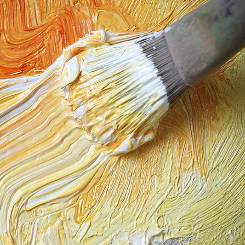

The area is currently under a blizzard warning. This major storm is set to impact our area starting early Sunday evening through Monday afternoon. Snow accumulations are predicted in the 12-20 inch range. Due to this storm and the extensive campus clean-up operations that will need to take place, the University of New Haven will be closed Monday, February 23, 2026. All classes and events scheduled for Monday have been Cancelled.
Campus operations for residential students will be modified based on expected conditions. Separate messages will be sent from various offices and departments regarding changes to normal hours of operation.Current students, faculty, and staff can find the latest information about operations on myCharger (login required).
The Vice President of Human Resources has authorized the use of the “Other UNH Closing” pay code for non-essential employees. Essential employees are expected to report as directed by their supervisors.
If you are parked on a public street in West Haven, please move your vehicle off-street as a snow parking ban has been issued prohibiting vehicles from parking on all public streets. A list of off-street parking lots can be found on the City of West Haven’s website.
The University of New Haven's Art & Creative Technology program offers you professional art training within the context of a top-tier university, enriched by the resources of a liberal arts education. The department places a particular emphasis on the history and context of art and design, weaving contemporary visual culture together with the world around us.
You’ll develop your critical thinking skills early — in foundation classes that lend themselves to producing work that is both technically proficient and challenges conventional ideas of art. A low student-to-faculty ratio, paired with faculty mentorship, guidance, and independent study opportunities, promote an atmosphere of exploration, communication, and artistic growth.
Our faculty are leaders and innovators in their fields, bringing both deep professional experience and academic rigor to the classroom.
Animators and Multimedia Artists
1.6% Growth 2024-2034
Art Director
4.2% Growth 2024-2034
Curator
7% Growth 2024-2034
The course covers fundamental principles and elements of design in relation to line, color, composition, space, value, and visual observation, and how these relate to the fields of art and design in general. An emphasis will be placed on interdisciplinary learning, collaborative projects, and incorporate historical, cultural, and global points of view.
A basic-foundation course which includes a disciplined study in the fundamentals of drawing such as nature studies, perspective, exercises in coordination of hand and eye.
The exploration of three-dimensional materials for maximum effectiveness in expressive design. Experimentation with clay, plaster, wood, stone, canvas, wire screening, metal, found objects. A basic understanding of major, fundamental methods: casting and carving.
This course is an introduction to photographic methods, form, and content, with an emphasis on the digital photographic process and the "darkroom" of Photoshop. Students will learn how to use the camera, Photoshop, and printers to create original artwork. Through the duration of this course, we will look at photography as a medium and critically examine this form of art and the implications of digital technologies that have emerged to affect the photographic image.
The University of New Haven offers a wide variety of in-depth courses that create a transformational educational experience for our students. To view the complete list of courses you'll take while pursuing a Bachelor's degree in Art & Creative Technology, check out the Academic Catalog:
Get an inside look at what differentiates the University of New Haven and how your experiences as a student will prepare you for success.



All University of New Haven students have access to the many resources available through the University’s Career Development Center, which has been named one of the best in the nation by The Princeton Review.
From career assessments, networking, and job shadowing to on-campus interviews and salary negotiation, the Career Development Center provides the skills and connections to identify a meaningful career and an opportunity to pursue your passion.
Learn More
The University of New Haven has achieved the National Association of Schools of Art & Design (NASAD) accreditation. This mark of excellence designates the University's B.A. in Art & Creative Technology and B.F.A. programs in Graphic and Digital Design, and Interior Design as nationally accredited programs.
Founded in 1944, NASAD is an organization of schools, conservatories, colleges, and universities with approximately 360 accredited institutional members. It establishes national standards for undergraduate and graduate degrees and other credentials for art and design and art/design-related disciplines, and provides assistance to institutions and individuals engaged in artistic, scholarly, educational, and other art/design-related endeavors.
Learn More
The Charger Blog
University of New Haven lecturer Shawn Persinger discusses his new book, “Creative Rhythms for Melodic Instruments or Think Like a Drummer,” which blends his lifelong passion for music with an innovative approach to teaching, composing, and creativity.
There are a variety of opportunities for you to learn more about our programs, what it is like to be a student here, and the scholarships, assistantships and financial aid that we offer. Whether you want to meet us on campus or online, we have something for you.
Whether you're still in high school or are transferring from another college, we offer full- and part-time opportunities for undergraduates from inside the U.S. and abroad. The admission process can begin as early as the end of your high school junior year.
The Application Process
We offer a comprehensive financial aid program, with students receiving assistance in the form of grants, scholarships, student loans, and part-time employment. Funds are available from federal and state governments, private sponsors, and from university resources. More than 85 percent of the University's full-time undergraduate students receive some form of financial assistance.
Learn More